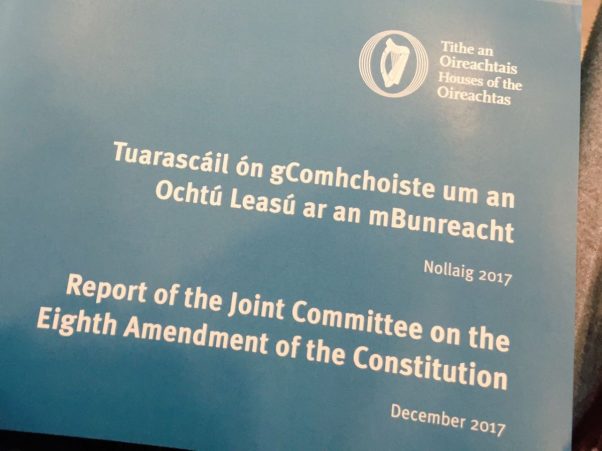By David Mullins
The Oireachtas Committee of the Eighth Amendment has published its final Report. While its recommendation to advocate ‘Repeal Simpliciter,’ or the total abolition of the Eighth Amendment is deeply disturbing, it was well flagged.
The same cannot be said for some of the other less ‘controversial’ recommendations that have slipped quietly below the radar. One such recommendation relates to the provision of ‘Sex Education’ in all primary, post-primary schools and colleges. The text of the resolution reads: “The Committee recommends a thorough review of sexual health and relationship education, including the areas of contraception and consent, in primary and post-primary schools, colleges, youth clubs and other organisations involved in education and interactions with young people. Sufficient time must be provided in the school’s curriculum for such education and it should be taught by suitably qualified personnel. The information should be provided in an impartial and factual manner that is independent of school ethos.”
Aside from the less than subtle and patronising tone, there are deeply troubling aspects to this resolution that demand further analysis. Generally speaking it represents a direct threat to the ability of denominational schools to advance their own view of human sexuality and intimacy. Indeed in its own way it is a charter for conflict. However, given that the resolution is part and parcel of the most radical set of proposals ever to have been advanced with respect to eroding a fundamental human right in this State, perhaps it was purposely meant to be so.
An equally striking aspect of the resolution is that it implicitly calls for the establishment of something akin to a State sanctioned ‘sex censor’. How else I wonder will schools be able to ascertain if their sex education teaching is ‘impartial’? Who gets to decide the parameters of such impartiality is anyone’s guess. Only one thing is clear; if the Committee gets its way it will most certainly not be parents.
Let us take another example where the potential for conflict arises.
During the course of the Committee’s deliberations the view was repeatedly put that abortion regardless of reason is primarily a matter of ‘healthcare.’ This opinion was often mentioned in the same breath as the “fact” that the ‘foetus’ is not a human child worthy of protection by law. Indeed some of the settled concepts of fundamental human embryology were also challenged, such as questioning when human life begins. For some, it was simply a ‘fact’ that the ‘foetus’ only becomes a child after it takes its first breath outside the womb.
More disturbingly, it was also claimed by the British Pregnancy Advisory Service in its evidence to the Committee that the unborn child cannot feel pain until 28 weeks gestation.
Given all of this, we can confidently surmise that any school or third level institution which dares to teach facts contrary to these positions, such as the fact that human life begins at conception, or that the unborn child does indeed feel excruciating pain when feticide is performed on it after 22 weeks gestation, will inevitably fall foul of the de facto censor that the Committee wishes to see established.
It is the last phrase of the resolution that most starkly encapsulates the intentions of the Committee when it says sex education must be “independent of school ethos.”
Not only is this a clear statement of intent, it is also a damning judgement on the perceived capacity of denominational schools to formulate a coherent approach to human sexuality and sexual behaviour in general. This is effectively a rebuke by the Committee to all parents who would seek to have their children educated in the light of the Christian vision of sexual intimacy, or any other point of view that conflicts with the committee.
We may well ask then what does ‘independent of ethos’ amount to but a statement of breath-taking, arrogant over-reach where the constitutional acknowledgement of parents as the primary educators of their children is obliterated.
















